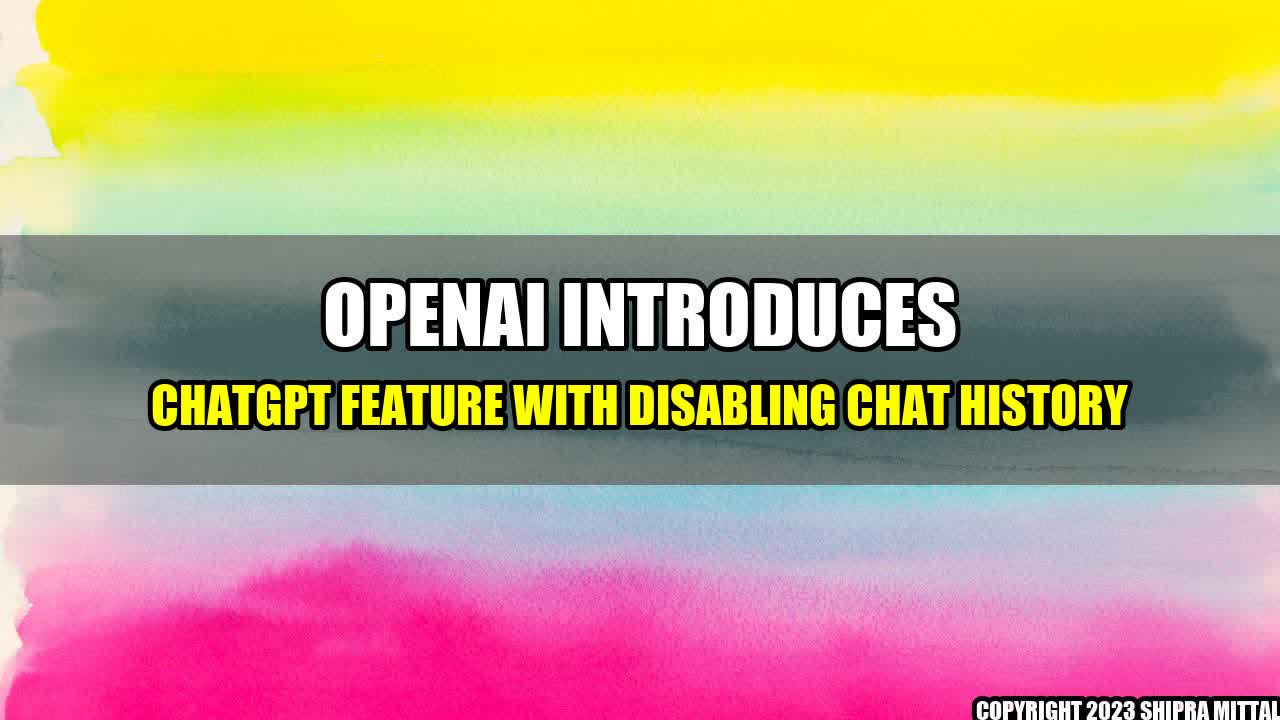Imagine you're talking to a chatbot and divulge some sensitive information. A few days later, you revisit the chat to check something and realize that your chat history contains that information. You start worrying about the security of your data and regret speaking to the chatbot in the first place. Doesn't sound good, does it?
But fret not, OpenAI has recently introduced a new feature in its chatbot called ChatGPT which lets users disable chat history. In simpler terms, once a user enables this feature, their chat history will not be saved, and they can start afresh every time they talk to the chatbot.
This new feature is beneficial for people who do not want to keep their chat history and are concerned about their privacy. Some examples of such users are:
- Security professionals who use chatbots to test their systems and do not want to leave any trace.
- People who seek advice on sensitive issues like mental health or sexual orientation and do not want to revisit that chat history.
- Businesses that use chatbots to interact with customers but want to avoid liability issues related to data privacy.
OpenAI's ChatGPT feature is a significant step towards ensuring data privacy and security. It gives users control over their chat data and increases user trust in chatbot technology.
Conclusion
- OpenAI's new ChatGPT feature enables users to disable chat history.
- This feature benefits people who are concerned about their privacy and do not want to keep their chat history.
- ChatGPT is a significant step towards ensuring data privacy and security and increases user trust in chatbot technology.

Akash Mittal Tech Article
Share on Twitter Share on LinkedIn